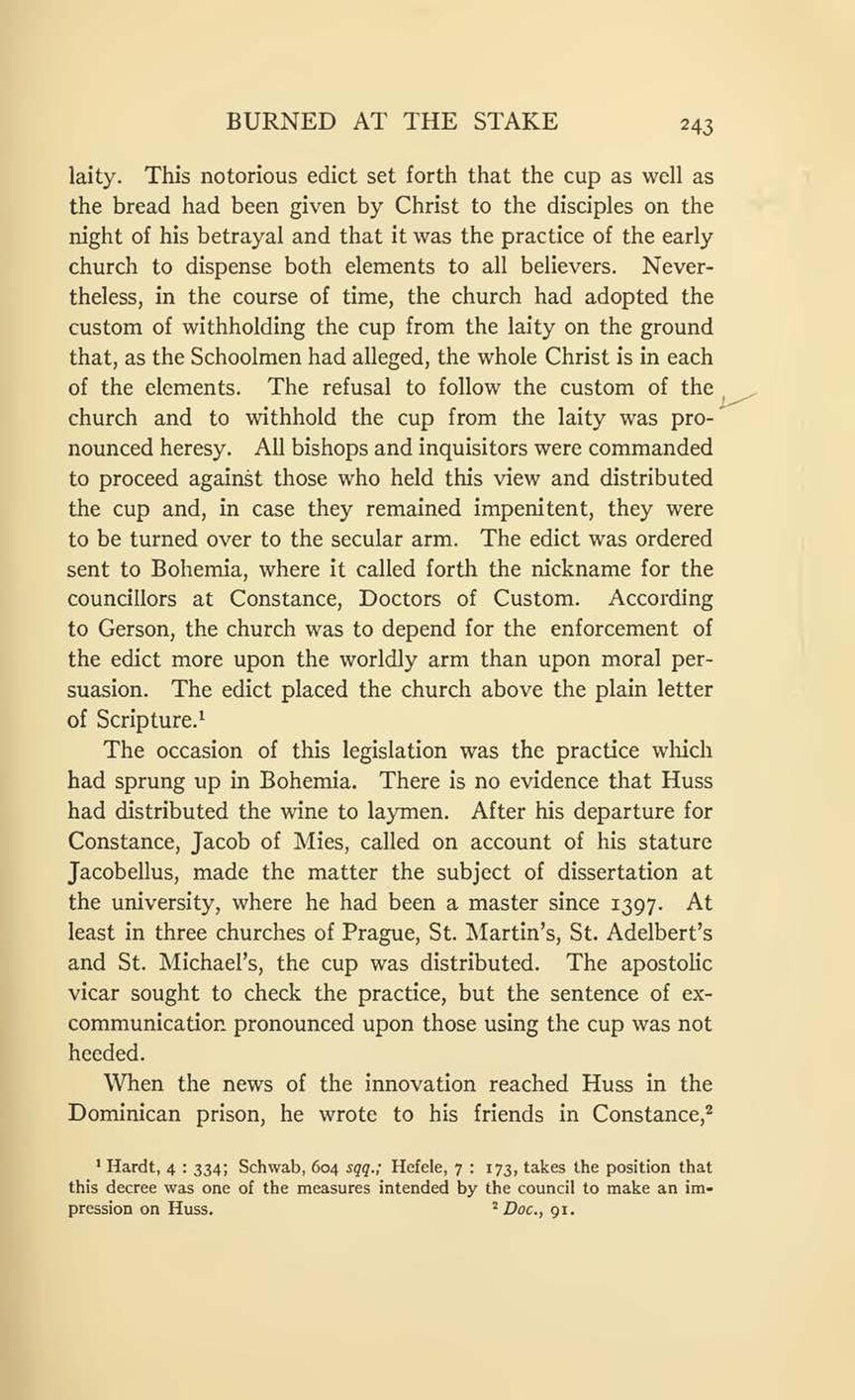laity. This notorious edict set forth that the cup as well as the bread had been given by Christ to the disciples on the night of his betrayal and that it was the practice of the early church to dispense both elements to all believers. Nevertheless, in the course of time, the church had adopted the custom of withholding the cup from the laity on the ground that, as the Schoolmen had alleged, the whole Christ is in each of the elements. The refusal to follow the custom of the church and to withhold the cup from the laity was pronounced heresy. All bishops and inquisitors were commanded to proceed against those who held this view and distributed the cup and, in case they remained impenitent, they were to be turned over to the secular arm. The edict was ordered sent to Bohemia, where it called forth the nickname for the councillors at Constance, Doctors of Custom. According to Gerson, the church was to depend for the enforcement of the edict more upon the worldly arm than upon moral persuasion. The edict placed the church above the plain letter of Scripture.[1]
The occasion of this legislation was the practice which had sprung up in Bohemia. There is no evidence that Huss had distributed the wine to laymen. After his departure for Constance, Jacob of Mies, called on account of his stature Jacobellus, made the matter the subject of dissertation at the university, where he had been a master since 1397. At least in three churches of Prague, St. Martin’s, St. Adelbert’s and St. Michael’s, the cup was distributed. The apostolic vicar sought to check the practice, but the sentence of excommunication pronounced upon those using the cup was not heeded.
When the news of the innovation reached Huss in the Dominican prison, he wrote to his friends in Constance,[2]
